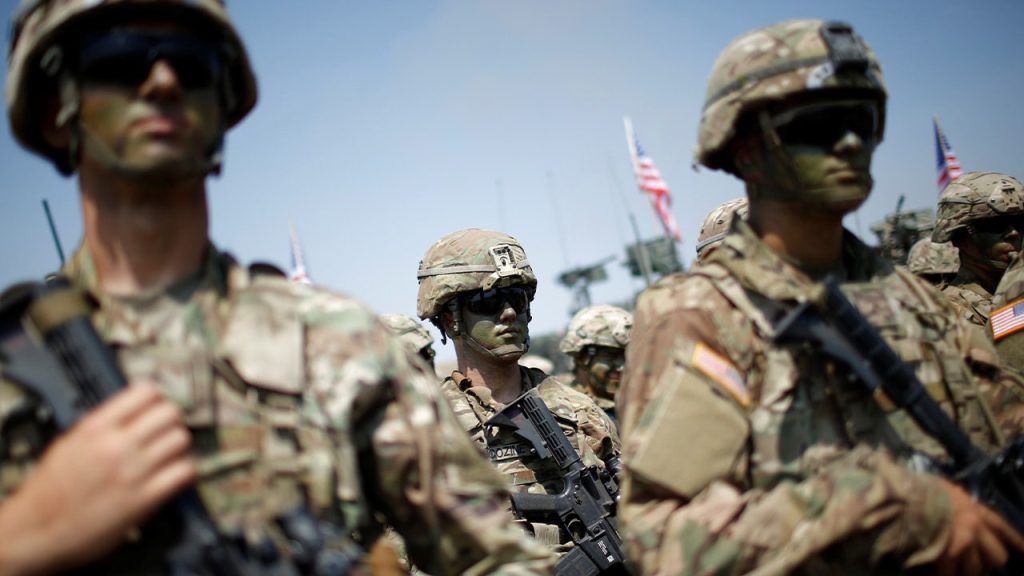A recent survey by the Ronald Reagan Institute highlights that a significant majority of Americans regard foreign policy and national defense as paramount concerns. Conducted during a time of critical political transition in the U.S., as the Biden and Trump administrations brace for a possible reshuffle, the survey reflects a profound consensus among citizens regarding the country’s role on the international stage. Regardless of whether they support the Republican or Democratic candidates, respondents agree on the importance of American leadership bolstered by a strong military capacity. This perspective seems to transcend partisanship, illustrating a collective belief that U.S. strength is essential for securing peace and managing relations with emerging threats from nations such as China, Russia, Iran, and North Korea.
The results of the survey, which gathered responses from around 2,500 participants between November 8-14, underscore the demand for greater American engagement in global matters. A notable shift has emerged since previous year’s polls, where 15% more Americans now advocate for an active U.S. presence on the world stage, signaling an increasing commitment towards international involvement, particularly among younger generations. This change is characterized by a substantial 32-point rise in support from those under 30, reflecting a broader understanding among younger voters of the geopolitical challenges the U.S. currently faces. The survey also indicates a marked concern among Americans about the interconnected threats posed by an alliance of adversarial nations.
Delving deeper into the data, the survey reveals variances in confidence regarding military capabilities between genders, particularly concerning conflicts with China and Russia. While a majority of male respondents express confidence in the U.S. military’s ability to prevail in warfare against China and Russia, female respondents display more skepticism. This divergence in outlook points to potential differences in perceptions of military strength and international risks, illustrating a nuanced landscape of public opinion on defense issues. Nevertheless, the overall consensus is that China is perceived as the most significant threat to U.S. interests, while Russia is viewed as the main antagonist in the current global order.
Moreover, the survey finds a broad concern among respondents regarding the collaborative efforts of Russia, China, Iran, and North Korea – a coalition that many Americans believe intensifies existing global tensions. A striking 85% of participants express unease about these nations working together. The implications of this finding underline the need for urgent attentiveness from U.S. policymakers, as citizens expect their government to address these interconnected threats with decisiveness and urgency. The way this cooperation plays out in various geopolitical hotspots, such as Ukraine and the Middle East, is closely monitored by the public, signifying an increased awareness of international conflicts.
Interestingly, while the American public prioritizes domestic issues—like healthcare and social security—over military spending and foreign policy initiatives, they still recognize the importance of national security. The findings suggest that many Americans do not advocate for a retreat from international engagement or military readiness. There’s a prevailing desire for the government to exhibit dual functionality—actively manage domestic concerns while also maintaining a robust foreign policy. This indicates a complex relationship where economic and social priorities coexist with an insistence on maintaining strong military capabilities and international leadership.
In conclusion, the Ronald Reagan Institute’s survey underscores a critical perspective among Americans regarding foreign policy and national defense, illuminating a complex balance between domestic priorities and international responsibilities. The data indicates an evolving sentiment toward a more engaged U.S. stance globally, reflected particularly among younger generations. The consensus on the necessity for strong military leadership against perceived threats showcases a clear expectation for government action to safeguard national interests. Ultimately, this reflects a robust commitment to maintaining a proactive and leading role in the global arena, asserting that the American people value both security and international engagement amidst the shifting geopolitical landscape.










